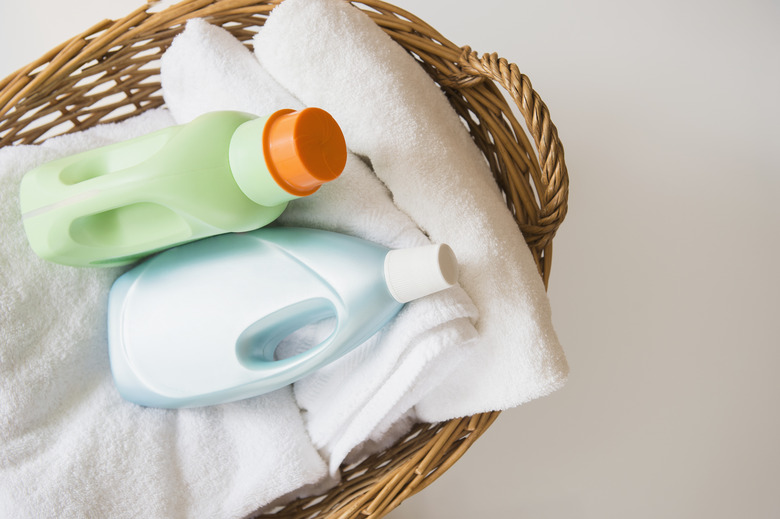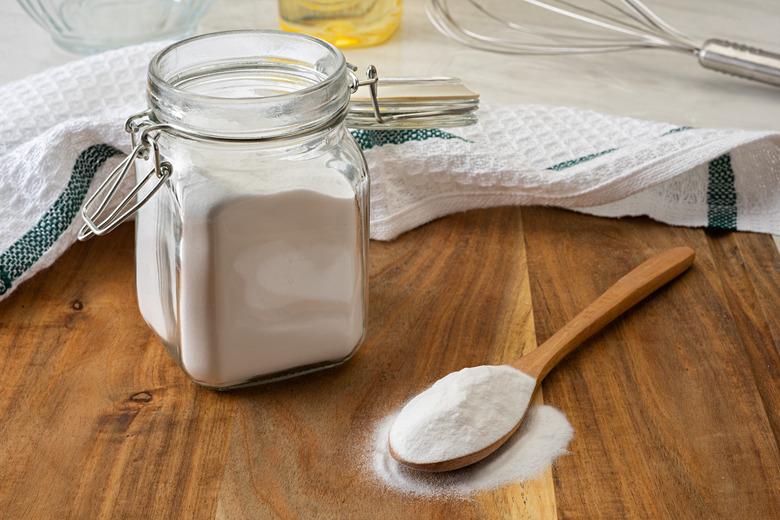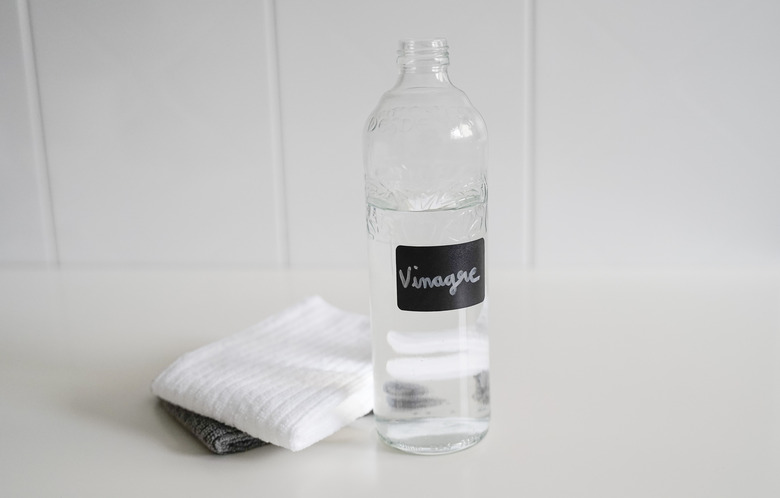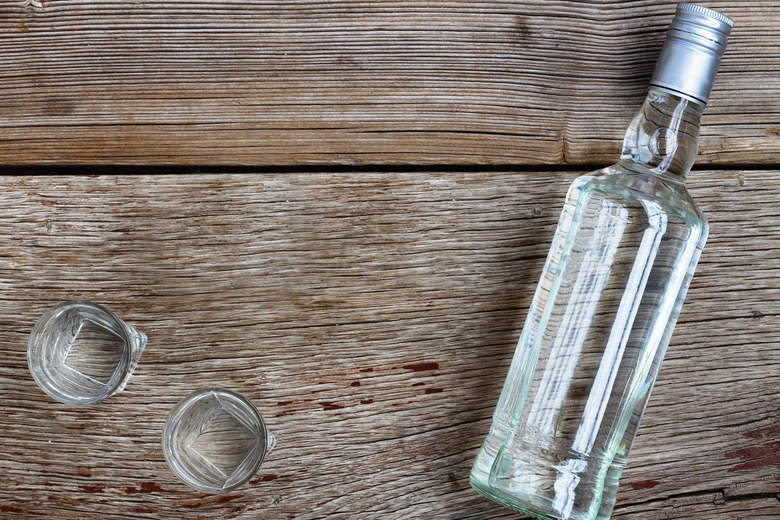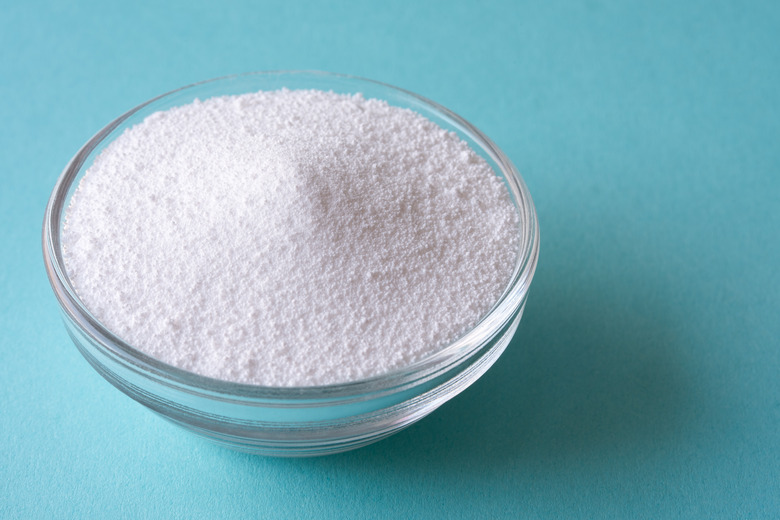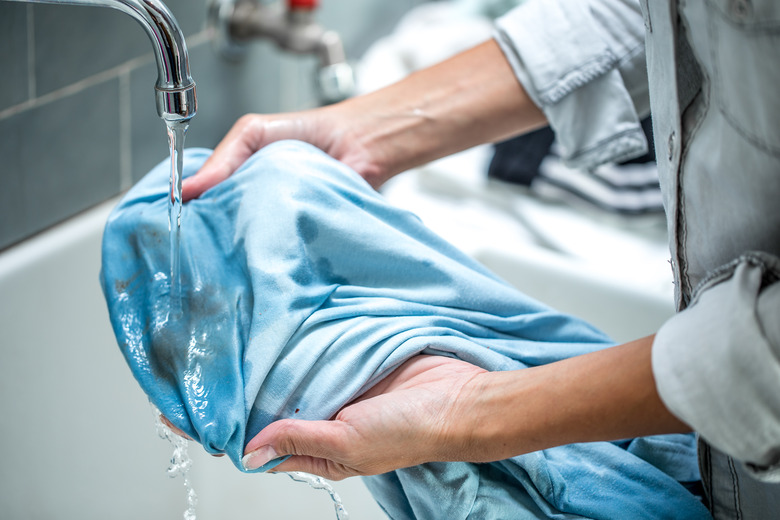These Are The Best Laundry Detergent Substitutes When You're In An Absolute Bind
We may receive a commission on purchases made from links.
Sooner or later, you'll find yourself in that jam that no one enjoys: You need clean clothes, but someone forgot to buy more laundry detergent. The first instinct is usually to turn to other foaming cleaning agents, like shampoo or dish detergent, but all cleaners are not created equally. Luckily, there are plenty of things you likely have at home that you can use for washing clothes. You might be surprised just how effective some of these laundry detergent substitutes can be.
Tip
Washable silk, wool, and other temperamental fabrics are best left aside until you have specialty detergent designed to clean them as gently as possible.
1. Baking Soda
1. Baking Soda
Is there anything baking soda can't do? Add cleaning laundry as another of baking soda's uses. It's not the cheapest solution, but it'll get your clothes clean and scent-free. It's as simple as adding a cup of baking soda to a full load of laundry and running it as you normally would.
Baking soda is also ideal for making a DIY laundry detergent. There are a few ways to use baking soda in a DIY detergent, but the most popular is as a blend. Simply use 2 cups each of borax, washing soda, and baking soda and combine them with a grated bar of soap (think Ivory, Fels-Naptha, or other natural soaps). Once mixed, store it in an airtight container. For a high-efficiency washing machine, as little as a level tablespoon of this homemade laundry detergent will get a load clean. For less-efficient machines, 2 to 3 tablespoons will do the trick.
2. White Vinegar
2. White Vinegar
Distilled white vinegar is the common vinegar found in most kitchens. It's the vinegar on chips and the basis for most pickle brines. But it's also one of the most effective cleaning products in your home. It's terrific for cleaning everything from sinks to toilets, but it'll even get your clothes cleaner.
The acidic quality of vinegar is why it's so effective at defeating dirt and also inhibiting the growth of mold and bacteria. A half cup of vinegar will do a load of laundry. It's also a popular stain remover when applied directly, and when added to laundry, it helps cut grease, removes excess soaps, prevents whites from yellowing, and brightens colors. Also, if you hate static cling but have sensitivities to fabric softener, add 1/2 cup of vinegar before the last rinse cycle.
Whatever you do, however, don't combine bleach with vinegar. It can create a chlorine gas, which is a pulmonary irritant.
Warning
Regular use of vinegar in washing machines is not advised, especially in front-loading washers. It's the down side of acetic acid; it damages rubber, causing gaskets and other fixtures in these machines to fail over time. Now and then, vinegar can freshen the machine and mildewy fabrics, but don't make it a regular player in your machine. (Dryer balls are an acid-free, machine-safe static cling solution.)
3. Vodka
3. Vodka
If the clothes you need don't seem dirty but have a little aromatic funk that will keep folks at bay, there's an easy solution: Add straight vodka to a spray bottle and you'll have a highly effective odor-neutralizer. Hang your item on the shower rod or the back of a door, spray it with the vodka, and let it air-dry. The funky whiff will take a walk so you can cozy up to folks later. Running your items through the dryer can help with a refresh as well. This won't work with any other booze, so that bottle of bourbon won't help. Vodka, unlike other boozes, is virtually scent-free.
This is a good time to use the cheap vodka, of course!
4. Lemon Juice
4. Lemon Juice
Citric acid, unlike acetic acid, is safe for machines, and it's even safer on clothes. Some people swear by lemon juice as their only cleaning product, but that can get pricey depending on where you live. Where lemon juice shines is in how white it gets whites. Some say it's safe on colors, but others say no, so play it safe and stick to whites when using lemon juice.
If you need a powerful stain remover for rust or fruit-juice stains, then lemon juice does that too. For juice stains, a 2:1 mix of water to lemon juice is a pretreatment. Just saturate the stain and rub it gently. Let it sit for a half hour and then wash the item with the rest of your laundry.For rust stains, sprinkle the stain with salt, squeeze undiluted lemon juice on top, and let it sit for 10 minutes. Then, blot the stain with a clean cloth and rinse with cold water. Repeat for stubborn stains and once they're gone, wash as usual.
5. Borax
5. Borax
Borax is a naturally occurring product made from sodium tetraborate decahydrate. It's more alkaline than baking soda but not so much as washing soda. And really, it's handy for getting clothes clean. It has one problem, though: It doesn't dissolve well in anything but hot water.
It only takes 1/2 cup to boost soap's power for a load of clothes, but borax isn't a stand-alone product, as it's not a surfactant and can't lift dirt from clothes. You could get industrious and make your own laundry soap:
- In a well-ventilated area, use a grater to finely grate a regular bar of soap and then add a cup each of borax and washing soda.
- If you like things scented, add 1/2 cup of Purex Crystals.
- Put everything in an airtight container and shake well but don't take the lid off for a few minutes so the dust can settle.
- Add 2 tablespoons of this mix for a medium-size load of laundry.
6. Washing Soda
6. Washing Soda
Washing soda is another great laundry detergent alternative. It's more alkaline and dissolves well in any temperature of wash cycle, but if you're using it without agitation, warm water dissolves it better. That added alkalinity means it can be harsh on skin, so be careful if you go reaching into the washing tub when it's full and give your arm a rinse with cold water afterward. When you need a presoak, washing soda does wonders. Just use 2 tablespoons per gallon of warm water or 1/2 cup for a filled washing machine.
Hand-Washing Solutions
Hand-Washing Solutions
If you just need that one great shirt for your dinner out, then hand-washing one item is easy. Whether you just run some water in a small bathroom sink or you load up the kitchen sink with detergent and water, hand-washing got people clean clothes until just a couple of generations ago. Simply wash your clothes in the sink one item at a time — lightest fabrics first and darkest at the end — and then hang them to dry.
A little dish soap, shampoo, or even a bar of soap will get your item clean. Simply apply a dab of liquid soap or a schmear of bar soap to wet clothes, agitate by rubbing the fabric together gently to dislodge any spots and grime, and rinse until there's no soap left. Hang to dry or toss it in a dryer and you'll be set to look your best.
But if you have a load of laundry to do, these are not ideal solutions. Laundry machines agitate things for maximum sudsing power. Liquid dishwashing soap and shampoo are designed to be sudsy to bust grime on dishes and hair, but those suds become problematic in a washer. Even the makers of Dawn dish soap will tell you it's not meant for doing laundry. (But pretreating grease spots and hand-washing? Absolutely!)
